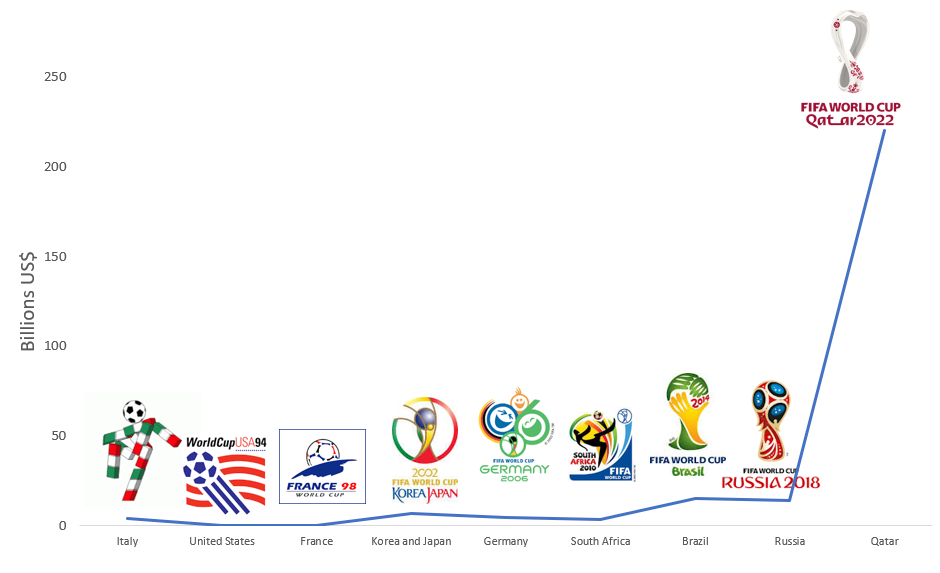I am old enough to remember the past 8 World Cups, all the way back to Mexico 1986. Qatar 2022 will be the 9th I remember.
For as far back as I can recall, I have never known a World Cup like this. The time, location and built-up all feel different. This is predictable and was predicted by many back in 2010 when Qatar won the right to host the event. The focus has been largely on non-football issues such as labour conditions and human rights issues.
The negative attention that Qatar is receiving prior to this World Cup has largely followed the path of Russia in 2018 and Brazil in 2014. For Russia the issues focused the political actions of Vladimir Putin, particularly his annexation of Crimea in 2014. Brazil witnessed mass demonstrations in major cities due to the enormous public spending at the 2014 World Cup (77% approx. of all money spent) to build stadia that would be largely unused after the Finals.
While human rights issues rightly dominate the agenda at Qatar 2022, less focus has been paid to the economic cost of hosting this tournament, a issue that has become much more important in recent decades. This is due to the substantial over-runs reported by host countries for all major sporting events and the decision by some countries and cities to withdraw from bidding for major tournaments. These withdrawals have been driven by various means including political promises (Rome) and plebiscite (Calgary).
| Qatar have been undeterred and have embarked upon an extraordinary expenditure programme to fund the 2022 World Cup. The graph to the right presents estimated expenditure data on each World Cup since Italia '90 in billions of US dollars. The $15 billion and $14.2 billions spent by Brazil and Russia respectively now pale into insignificance when compared to the estimated $220 billion that Qatar is set to spend on World Cup 2022. |
According to reports the main elements of expenditure include the eight stadiums used for the tournament and a new metro linking these. Six of the eight stadiums have been constructed from scratch, with development only starting in the past 5-6 years for most. These are estimated to have cost between $6.5 billion and $10 billion each - far and away the most expensive stadia ever built.
The new metro system - a very impressive piece of infrastructure - will connect all eight venues, which are dispersed across a small geographic area in east Qatar. This will remain long after the event as will the stadia, with reports some will be partially dismantled and sent to other countries in need of sports infrastructure.
The estimated economic impact of the event is just $17 billion. That's a loss of more than $200 billion. It makes the losses of Russia, Brazil and South Africa look very small.

 RSS Feed
RSS Feed